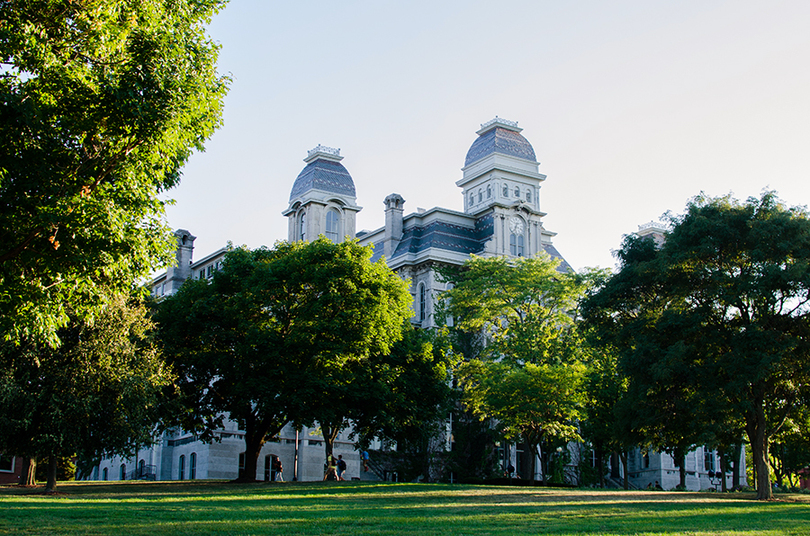Doctoral applications saw steep decline in 2015, study shows

Applications for graduate programs such as those at SU were down in 2015, according to a new study. Kiran Ramsey | Digital Design Editor
Of the five factors Rajesh Kumar considered as he applied for a doctoral program at Syracuse University, only one was positive. The rest filled him with fear: finances, having a family, supporting his parents and his future career options. Each of these options weighed on Kumar as he asked himself whether a doctorate was worth the struggle.
Yet Kumar, who is currently pursuing a Ph.D in computer science, said his concerns were balanced by his first motivation: “passion.”
Kumar is one of many students nationally who have grappled with the value of the doctoral degree in recent years.
A Council of Graduate Schools study published this month found 656,928 students applied for a doctoral program applications in 2015, a 4.3 percent decrease compared to the year prior.
Sreyoshi Dey, a doctoral student at the S.I. Newhouse School of Public Communications and graduate teaching assistant, said people might get caught up in their jobs and think a doctoral study is not for them.
Dey said once a person enters a doctoral program, they may go back to their profession or they might just stick with academia to become a professor or researcher.
“People are wising up to the fact that, in a lot of fields, the placement rate with people with Ph.Ds is low,” said Glenn Wright, the director of Graduate School Programs at SU.
Another reason doctoral programs are becoming less popular is a lack of funding, Kumar said, adding that some programs do not guarantee funding for as many years as it will take to complete the program.
Kumar said the federal funding cuts in humanities led to a decrease in applicants. Prospective students are not interested in splitting the lower funding unless they are increased, he added.
Kumar is not the only one who feels the effects of decreased funding.
“This is not a glamorous lifestyle and we are not going to get as much money as people think,” said Peta Long, vice president of internal affairs for the Graduate Student Organization. “We do not make money off of publications, but publishers do. There is a professor that wrote a book and he only gets a buck a book, if that.”
Students are also receiving less earnings because the stipends they receive as doctoral students are about one-fourth of what they could be making in the field without being in graduate school, Kumar said.
“You will be in a limbo for five to seven years and you cannot do anything with your life except work on your Ph.D and find free food,” Kumar said.
The uncertainty of the academia field is also daunting to prospective students because there is no job security with the temporary positions created at institutions rather than full time faculty, he added.
“While getting your Ph.D and afterwards, you are on a long list behind your peers working in the industry,” Kumar said. “In my computer science field, there is a good job market for Ph..Ds, but a lot of other PhDs, like in humanities and so on, they only have job openings in academia.”
According to a study conducted by The Chronicle of Higher Education, 50 percent of doctoral students drop out of the programs before they graduate.
“People who generally go for Ph.Ds are generally people who need something or people who are passionate about their discipline and research,” Long said.
In the future, applicants may have an increasingly difficult time deciding whether they should apply for a Ph.D, Kumar said.
“You can make more money flipping the burger than being in a Ph.D program,” Kumar said.




